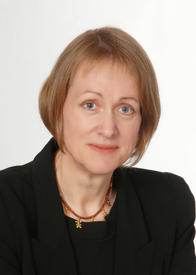Muscle or Fat Deposits

Celtic_Ace
Posts: 62 Member
What tells the body to break down and burn one more than the other?
Any studies and or research?
Any studies and or research?
0
Replies
-
Eating enough lean protien stops the body from breaking down and losing muscle. Exercise builds muscle. Exercise also burns calories, which the body gets from stored fat. Also, as you build muscle, your body burns more calories at rest, thus more fat lost again.
hope this helps!0 -
Lots of studies and research! My best suggestion would be to take an Exercise Physiology class at your local college because it is way too complex to explain in a short post here. But, I'll try to give you a general overview.
In order to do any type of function, be it exercise, digestion, brain function, etc., the body has to produce adenosine triphosphate (ATP). There are multiple ways that the body can produce ATP. The first system is the Creatine Phosphate system but it only produces enough ATP to fuel a few seconds of activity because there just isn't that much CP stored in the body. This is the way the body produces energy for an initial or short burst of activity like a 40 yard dash to get away from a predator. The next system is anaerobic glycolysis, where the body breaks down carbohydrates in the form of glucose or glycogen. This system is active for short high intensity activities like a set of bench presses. The final system is aerobic glycolysis, where the by-products of anaerobic glycolysis are used to convert fat to fuel. Because you use pyruvate (the by-product of glucose/glycogen breakdown that is used to start the Krebs cycle to burn fat), you use aerobic glycolysis during longer exercise sessions. Now, in explaining these systems, many people teach that you use one or another exclusively, but that is not the case. You use all of the systems simultaneously. So, while you may get some ATP from the CP system for a burst of activity during your workout, you will also be getting some ATP from anaerobic glycolysis to maintain the intensity and some more ATP from aerobic glycolysis to maintain the duration. As your systems deplete fuel, you will notice that you can't keep up the bursts or the high intensity because you are running lower in fuel for those types of activities, but you can go for a long time at lower intensity because fat is an abundant source of fuel.
Now, you may have noticed that I mentioned carbs and fat as fuel sources but not protein. That's because the body hates to use protein for fuel. At any given time, only about 10% of the fuel used by the body comes from protein. If you don't have enough glycogen (carbs) in the body, then it can break down protein and convert it to carbs to fuel the glycolysis processes. The problem with that is that if you are using protein for fuel, then you aren't using it for muscle building and maintenance. Since the body can only process so much protein at one time (because it has to remove the nitrogen from it before the body can use it) immediate intake of protein isn't a good source of fuel for activity, so if there aren't enough carbs available for immediate usage or glycogen stored in the muscles and liver, then the body has to break down muscles to convert the protein into glycogen or glucose to use for fuel. So, lack of carbohydrate intake can cause the body to breakdown muscle for the glycogen needs to fuel activity.
Also, during times of fasting (for more then 3-4 hours) and during times of stress, the body produces cortisol. Cortisol tells the body to breakdown muscle and store fat. That's why a lot of people who are specifically training to maintain muscle mass and lose fat may benefit from eating every 3 hours, even overnight, so that they don't have that spike in cortisol levels. This is the mechanism that is blamed for the "starvation" mode that is so frequently talked about. When the body perceives that it is going to have a higher need for energy then is coming in, cortisol levels rise and tell the body to break down that muscle that burns calories at rest and store what energy it can in the form of fat since fat is easiest to store and doesn't take a lot of energy to maintain while it can store a lot of energy.
Also, some good books to check out if you don't have access to the classes are "Nutrition for Health, Fitness, and Sport" by Melvin Williams and "Exercise Physiology Theory and Application to Fitness and Performance" by Scott Powers and Edward Howley. They site lots of sources and studies to back up the way the body works.0 -
Thank you very much Tonya.
That made sense.
Bottom line looks like "eat reasonable carbs every 3 hours".
Except for the in my sleep part 0
0 -
Yep, pretty much. But you want to eat a mix of carbs and protein because if you are exercising you need to have the protein on board to rebuild those muscles from the damage of exercise. Don't stop exercising, because in this case damage is good and leads to growth and strength improvements.
And as for the sleep eating, I don't typically recommend it due to lack of self control while sleeping preventing you from stopping at a serving. (Hence the Ambien weight gain problem.) But if you happen to wake up in the middle of the night hungry, having a snack isn't a bad thing.0
This discussion has been closed.
Categories
- All Categories
- 1.4M Health, Wellness and Goals
- 397.1K Introduce Yourself
- 44.2K Getting Started
- 260.9K Health and Weight Loss
- 176.3K Food and Nutrition
- 47.6K Recipes
- 232.8K Fitness and Exercise
- 457 Sleep, Mindfulness and Overall Wellness
- 6.5K Goal: Maintaining Weight
- 8.7K Goal: Gaining Weight and Body Building
- 153.4K Motivation and Support
- 8.3K Challenges
- 1.3K Debate Club
- 96.5K Chit-Chat
- 2.6K Fun and Games
- 4.6K MyFitnessPal Information
- 16 News and Announcements
- 18 MyFitnessPal Academy
- 1.4K Feature Suggestions and Ideas
- 3.1K MyFitnessPal Tech Support Questions


